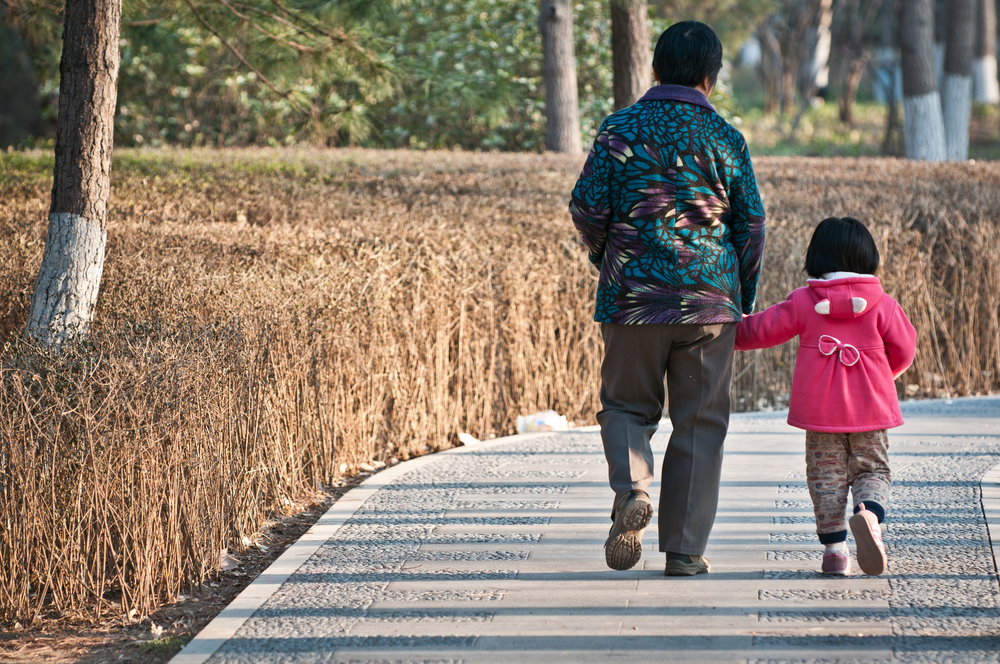How Student-Loan Debt, or Not Having It, Shapes Lives
To better understand the impact of student debt on borrowers, consider the trajectories of those who never took out loans
Without student loans, millions of Americans couldn’t afford the degrees that might smooth the road to prosperity. Yet, having student loans can also make it tougher to get far along that journey.
People who leave school without loans can have an easier time buying a home, saving for retirement or starting a business, compared with those who have student debt. One aim of President Biden’s student-debt relief plan, currently stalled by legal challenges, is to help borrowers shed debt and progress toward those goals, though critics argue the program is unfair to those who sacrificed to pay for college or pay down their debt.
Research from the Federal Reserve found that, between 2005 and 2014, there was a link between rising student debt and the reduced share of young adults who own a home. Carrying student debt is also associated with being less likely to start a small business, according to research from the Philadelphia Fed, and with being more likely to delay having children, according to researchers at Ohio State University.
Furthermore, college graduates with student debt have built up an average of about $9,000 in retirement assets by age 30—half as much as those without student debt, according to a 2018 study from the Center for Retirement Research at Boston College.
“Student debt is a new stratification system,” says Charlie Eaton, an associate professor of sociology at the University of California, Merced who studies economic disparities in higher education. “It confers a set of advantages at the end of college for people who are debt-free over people with student debt.”
Being debt-free isn’t itself a guarantee of prosperity, and even with student loans, Prof. Eaton says, “you’re probably mostly better off going to college, though that’s not true for everyone.”
It isn’t surprising that those without student debt often hit financial milestones sooner than borrowers do. Notably, these graduates say they also feel more freedom to take personal and professional risks or to pursue passions and alternate paths.
Skyler McKinley, a 30-year-old in Denver, says he wouldn’t have been able to accept his first job working for $34,000 a year if he had graduated with debt. That job, deputy director of a state agency in charge of Colorado’s then-novel regulations on recreational-marijuana sales, was instrumental in launching his career, he says.
“I graduated with so much more freedom because there were no bills that came due,” says Mr. McKinley, who now works in communications at a national consumer group. He funded his education at American University through survivors’ benefits from his late father’s job as a state judge and a merit scholarship.
Mr. McKinley says that being debt-free put him in a better position, financially and psychologically, to take out loans to buy a condo in Denver for about $300,000 in 2018 and a bar for a similar amount last year.
Owning a bar was a long-held dream, though the Oak Creek Tavern only breaks even, Mr. McKinley says. “I wouldn’t have taken that risk if I was also servicing and paying debt,” he says.
The majority of recent four-year college graduates took on at least some student debt. For the class of 2021, 46% of bachelor’s degree recipients had none, according to the College Board, a nonprofit. Among Americans with a bachelor’s degree, 64% of those who didn’t take on student debt report their financial status as “living comfortably,” while 36% of those who currently hold debt say the same, according to a Fed survey.
The median monthly student-loan bill is between $200 and $299, according to data from the Fed, and many borrowers pay significantly more. In 2021, 12% of debt holders were behind on their payments, according to Fed data, and the rate was higher for Black and Hispanic borrowers, who Prof. Eaton notes face disadvantages in the labor market and tend to come from less family wealth.
Some critics of Mr. Biden’s plan argue that student-debt relief unfairly favours some well-paid college graduates over Americans without a college degree, who might be more financially insecure. Republican Sen. Mitch McConnell has called the plan “a slap in the face to every family who sacrificed to save for college, every graduate who paid their debt, and every American who chose a certain career path or volunteered to serve in our Armed Forces in order to avoid taking on debt.”
Whether or not a college student takes on debt comes down to family finances, academic achievement and, sometimes, chance. Those whose parents can afford to pay full tuition might also benefit into adulthood from having a financial safety net and family connections.
Rachel Romer, co-founder and chief executive of Guild Education, has seen firsthand the difference it makes to not have student loans. In what she calls an “A/B test on affordable education,” one side of her family—21 of her siblings and cousins, plus Ms. Romer—had their college tuition paid with money from a family business started by her grandfather, while the other side—20 cousins—didn’t have shared wealth to draw on.
This family history served as an inspiration for her to start Guild, a platform for employers to provide education benefits to workers that can be accessed debt-free. Ms. Romer, 34, says that having a family that could afford to put her through Stanford University gave her the financial freedom to attend business school and start her company at age 26.
Emerging from college without debt can also give some graduates the space to map out alternative paths after college.
Since Frank Teng graduated in 2013, one guiding question when he is faced with a big decision has been, “What would make for a better story?” Mr. Teng, a 31-year-old user-experience designer in Houston, received a full scholarship from Yale University after being connected with the school by QuestBridge, a nonprofit that matches colleges and low-income applicants.
With no loans, he was more comfortable putting money toward a mid-college gap year backpacking in Southeast Asia, therapy in his late 20s and a monthlong wilderness-survival training earlier this year. If he had amassed debt, he says his pursuit of a good story would have been less of a priority than paying off all his loans.
 Copyright 2020, Dow Jones & Company, Inc. All Rights Reserved Worldwide. LEARN MORE
Copyright 2020, Dow Jones & Company, Inc. All Rights Reserved Worldwide. LEARN MORE
This stylish family home combines a classic palette and finishes with a flexible floorplan
Just 55 minutes from Sydney, make this your creative getaway located in the majestic Hawkesbury region.
As Paris makes its final preparations for the Olympic games, its residents are busy with their own—packing their suitcases, confirming their reservations, and getting out of town.
Worried about the hordes of crowds and overall chaos the Olympics could bring, Parisians are fleeing the city in droves and inundating resort cities around the country. Hotels and holiday rentals in some of France’s most popular vacation destinations—from the French Riviera in the south to the beaches of Normandy in the north—say they are expecting massive crowds this year in advance of the Olympics. The games will run from July 26-Aug. 1.
“It’s already a major holiday season for us, and beyond that, we have the Olympics,” says Stéphane Personeni, general manager of the Lily of the Valley hotel in Saint Tropez. “People began booking early this year.”
Personeni’s hotel typically has no issues filling its rooms each summer—by May of each year, the luxury hotel typically finds itself completely booked out for the months of July and August. But this year, the 53-room hotel began filling up for summer reservations in February.
“We told our regular guests that everything—hotels, apartments, villas—are going to be hard to find this summer,” Personeni says. His neighbours around Saint Tropez say they’re similarly booked up.
As of March, the online marketplace Gens de Confiance (“Trusted People”), saw a 50% increase in reservations from Parisians seeking vacation rentals outside the capital during the Olympics.
Already, August is a popular vacation time for the French. With a minimum of five weeks of vacation mandated by law, many decide to take the entire month off, renting out villas in beachside destinations for longer periods.
But beyond the typical August travel, the Olympics are having a real impact, says Bertille Marchal, a spokesperson for Gens de Confiance.
“We’ve seen nearly three times more reservations for the dates of the Olympics than the following two weeks,” Marchal says. “The increase is definitely linked to the Olympic Games.”

Getty Images
According to the site, the most sought-out vacation destinations are Morbihan and Loire-Atlantique, a seaside region in the northwest; le Var, a coastal area within the southeast of France along the Côte d’Azur; and the island of Corsica in the Mediterranean.
Meanwhile, the Olympics haven’t necessarily been a boon to foreign tourism in the country. Many tourists who might have otherwise come to France are avoiding it this year in favour of other European capitals. In Paris, demand for stays at high-end hotels has collapsed, with bookings down 50% in July compared to last year, according to UMIH Prestige, which represents hotels charging at least €800 ($865) a night for rooms.
Earlier this year, high-end restaurants and concierges said the Olympics might even be an opportunity to score a hard-get-seat at the city’s fine dining.
In the Occitanie region in southwest France, the overall number of reservations this summer hasn’t changed much from last year, says Vincent Gare, president of the regional tourism committee there.
“But looking further at the numbers, we do see an increase in the clientele coming from the Paris region,” Gare told Le Figaro, noting that the increase in reservations has fallen directly on the dates of the Olympic games.
Michel Barré, a retiree living in Paris’s Le Marais neighbourhood, is one of those opting for the beach rather than the opening ceremony. In January, he booked a stay in Normandy for two weeks.
“Even though it’s a major European capital, Paris is still a small city—it’s a massive effort to host all of these events,” Barré says. “The Olympics are going to be a mess.”
More than anything, he just wants some calm after an event-filled summer in Paris, which just before the Olympics experienced the drama of a snap election called by Macron.
“It’s been a hectic summer here,” he says.

AFP via Getty Images
Parisians—Barré included—feel that the city, by over-catering to its tourists, is driving out many residents.
Parts of the Seine—usually one of the most popular summertime hangout spots —have been closed off for weeks as the city installs bleachers and Olympics signage. In certain neighbourhoods, residents will need to scan a QR code with police to access their own apartments. And from the Olympics to Sept. 8, Paris is nearly doubling the price of transit tickets from €2.15 to €4 per ride.
The city’s clear willingness to capitalise on its tourists has motivated some residents to do the same. In March, the number of active Airbnb listings in Paris reached an all-time high as hosts rushed to list their apartments. Listings grew 40% from the same time last year, according to the company.
With their regular clients taking off, Parisian restaurants and merchants are complaining that business is down.
“Are there any Parisians left in Paris?” Alaine Fontaine, president of the restaurant industry association, told the radio station Franceinfo on Sunday. “For the last three weeks, there haven’t been any here.”
Still, for all the talk of those leaving, there are plenty who have decided to stick around.
Jay Swanson, an American expat and YouTuber, can’t imagine leaving during the Olympics—he secured his tickets to see ping pong and volleyball last year. He’s also less concerned about the crowds and road closures than others, having just put together a series of videos explaining how to navigate Paris during the games.
“It’s been 100 years since the Games came to Paris; when else will we get a chance to host the world like this?” Swanson says. “So many Parisians are leaving and tourism is down, so not only will it be quiet but the only people left will be here for a party.”
This stylish family home combines a classic palette and finishes with a flexible floorplan
Just 55 minutes from Sydney, make this your creative getaway located in the majestic Hawkesbury region.






















